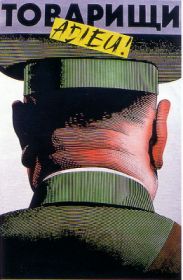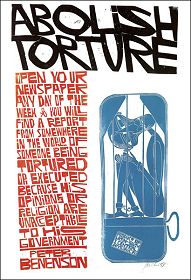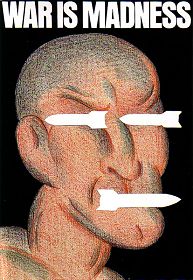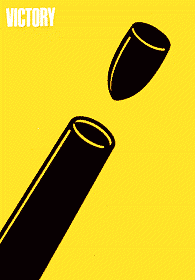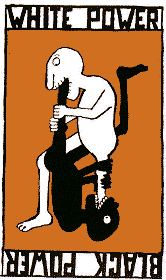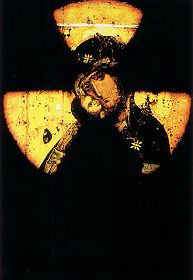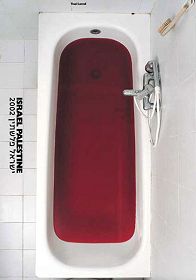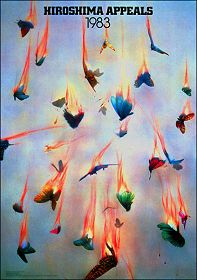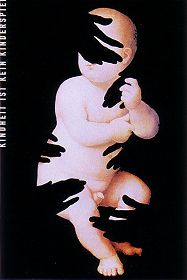
Alain Le Quernec
Kindheit ist kein Kinderspiel (Childhood is not child’s play), France, 1998
The Essen Poster Museum in Germany organized an international competition advocating for protection of children in general, and against pedophilia in particular.
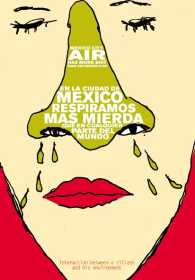
Alejandro Magallanes
Mexico City Air, Mexico, 2001
This poster was designed to express the interaction between a citizen and his environment drawing attention to the lack of clean air in Mexico City.
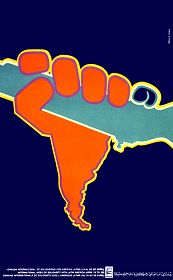
Asela Perez Bolado
International Week of Solidarity with Latin America, Cuba, 1970
Many OSPAAAL posters address the subject of revolutionary change in this hemisphere, including movements within the United States and Puerto Rico. The broad subject of fundamental Latin American change was exquisitely addressed in this poster.

Grapus
Apartheid/Racism, France, 1986
This poster addresses the idea that Apartheid is Racism and not a political philosophy which white South Africa tried to sell to the world.
